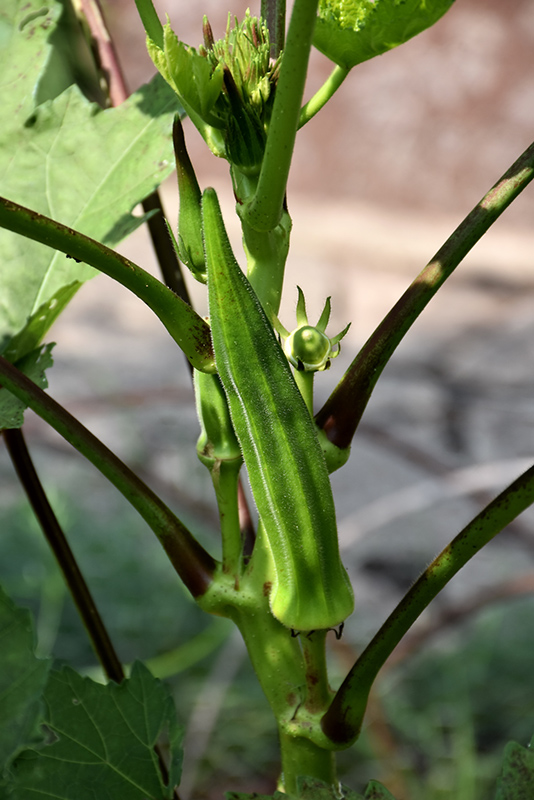Height: 4 feet
Spacing: 18 inches
Sunlight:
![]()
Hardiness Zone: (annual)
Description:
Grown in sunny conditions, this selection can grow up to 5 feet in height, producing edible seed pods that are great in strews, soups and even pickled; flowers and leaves are also edible; mild tasting; dislikes colder temperatures; staking required
Edible Qualities
Okra is an annual vegetable plant that is commonly grown for its edible qualities. It produces olive green pointy pods which are typically harvested when mature. The pods have a mild taste and a crunchy texture.
The pods are most often used in the following ways:
- Fresh Eating
- Eating When Cooked/Prepared
- Cooking
- Pickling
Planting & Growing
Okra will grow to be about 4 feet tall at maturity, with a spread of 3 feet. When planted in rows, individual plants should be spaced approximately 18 inches apart. Because of its vigorous growth habit, it may require staking or supplemental support. This fast-growing vegetable plant is an annual, which means that it will grow for one season in your garden and then die after producing a crop.
This plant is typically grown in a designated vegetable garden. It should only be grown in full sunlight. It does best in average to evenly moist conditions, but will not tolerate standing water. It is not particular as to soil type or pH. It is quite intolerant of urban pollution, therefore inner city or urban streetside plantings are best avoided. This species is native to parts of North America. It can be propagated by cuttings.
Okra is a good choice for the vegetable garden, but it is also well-suited for use in outdoor pots and containers. With its upright habit of growth, it is best suited for use as a 'thriller' in the 'spiller-thriller-filler' container combination; plant it near the center of the pot, surrounded by smaller plants and those that spill over the edges. It is even sizeable enough that it can be grown alone in a suitable container. Note that when growing plants in outdoor containers and baskets, they may require more frequent waterings than they would in the yard or garden.
A NetPS Plant Finder tool
